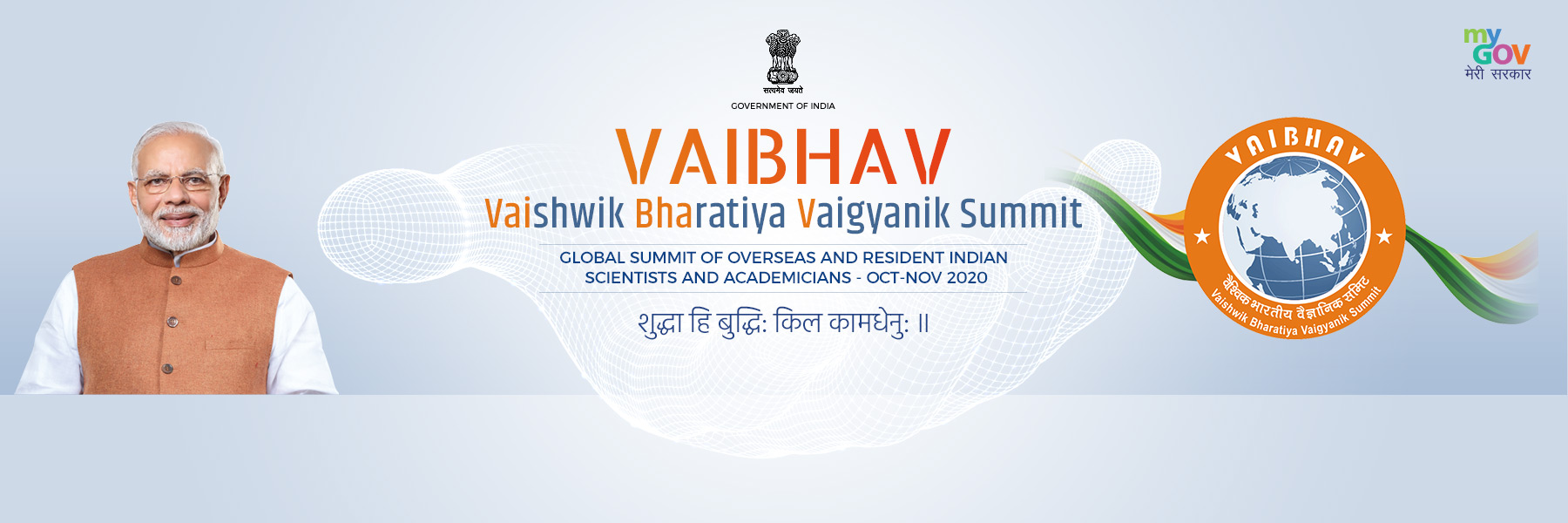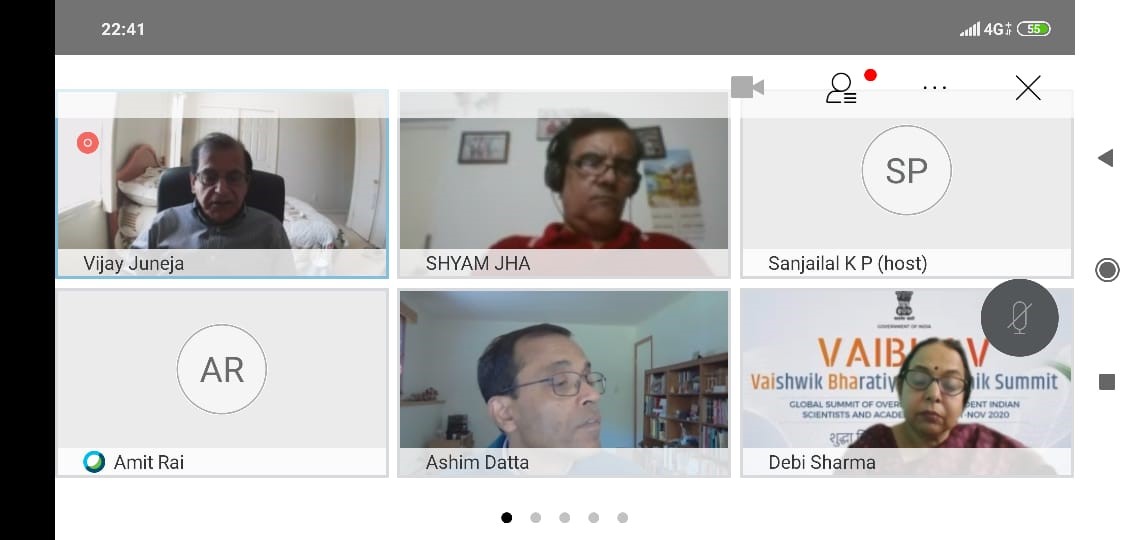
Vaishwik Bharatiya Vaigyanik (VAIBHAV) Summit is an ongoing global summit of overseas and resident Indian scientists and academicians. It is a collaborative initiative by S&T and Academic Organisations of India to enable deliberations on thought process, practices and R&D culture with a problem solving approach for well-defined objectives.
As a part of the Vertical-16, viz. Agroeconomy and Food Security, a session on “Food Safety and Quality” was coordinated by ICAR-IIHR on October 14, 2020 in collaboration with CSIR-CFTRI.
The aim of the session was to discuss research gaps in the area and to provide solutions towards providing safe food for all. The new breakthroughs in the area, regulations and collaboration needs were also discussed.
The session was chaired by Dr P.K. Chakrabarty, Member-ASRB, DARE, DAC&FW, Government of India and Co-Chaired by Dr Kaushik Banerjee from ICAR-NRC Grapes, Pune. The Session was moderated by Dr. Anu Appaiah from CSIR-CFTRI, Mysuru and Dr Debi Sharma, ICAR-IIHR, Bengaluru. The esteemed panellists from ICAR included Dr M.R. Dinesh, Director, ICAR-IIHR, Dr S.K. Panda, ICAR-CIFT, Dr Ravi Kant Agrawal, ICAR-IVRI and Dr. S.N. Jha, ICAR.
In addition, scientists from various national institutions also participated as panellists. The overseas panellists were from USA, and included Dr. Rahul Pawar from US-FDA, Dr. Arun K Bhunia from Purdue University, Dr. Vijay K Juneja from USDA, Dr. Ashim Dutta, Cornell University, Dr. Srinivas Sistla, Virginia Commonwealth University and Dr. Solomon Darwin, UC Berkeley.
In his opening remarks, the Chairman, Dr. P.K. Chakrabarty, Member(PS) ASRB, GOI, stressed on the need for a greater convergence among the stakeholders engaged in food safety and quality research and highlighted the need for greater capacity building initiatives. The Co-Chairman and panellist Dr. Kaushik Banerjee, Principal Scientist, ICAR-NRC-Grapes, highlighted the strength of ICAR institutes in multiresidue analysis of food contaminants, and presented certain make-in-India initiatives that facilitate on-site residue testing and also allow comprehensive risk assessments of food. Dr Debi Sharma summarized the deliberations and action points in her concluding remarks.
The major recommendations for potential research collaboration areas from the session were as follows:
Analytical method development and residue monitoring:
- Development of rapid methods and sensors for on-site testing of chemical residues, microbial pathogens, marine biotoxins in food and water.
- Multiresidue methods for simultaneous monitoring of diverse contaminants (e.g., mycotoxins, antibiotics, pharmaceuticals & personal care products, persistent organic pollutants, etc.) in food, water, and dietary supplements.
- Non-target screening of food and water for the identification of emerging contaminants, and markers for quality deterioration.
- Development of robust and valid predictive models to describe growth, survival and inactivation of important pathogens in food.
Risk assessment:
- Dietary risk assessment of agrochemical residues- profiling of metabolites, and identification of marker compounds for human biomonitoring studies.
- Risk assessment of pesticide residues in processed products for MRL fixation.
Mitigation:
- Decontamination of food, feed, and water through removal of mycotoxins, heavy metals, pesticide residues, and processing contaminants.
- Screening of germplasm for low or no uptake of heavy metals from soil to develop crop plan in peri-urban areas where the irrigation water is usually mixed with wastewater.
- Recombinant bioengineered probiotics to control enteric infections.

